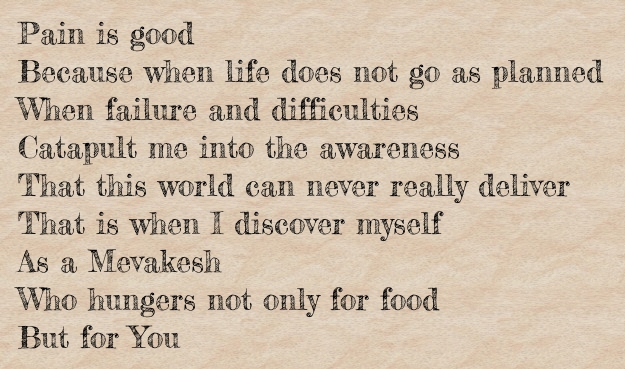|
You asked if my recovery would have been different if I had had access to the GYE Torah concepts of recovery... Funny thing is, I actually did think that I had access to these concepts back then. In other words, I knew all these concepts in my mind, but here's the thing; it is not the Torah (nor - lehavdil - the 12 Step program) that changes an addict, but rather how the addict understands and uses it. I don't believe a human has the ability to get these ideas truly into someone else's head. An addict is just plain deaf, until he/she is ready to hear. All we can do is keep yacking away until someone who is ready to "hear" really listens! That's just my opinion.You pointed out "all those Tzadikim on the forum who have done very well with the help of this wonderful website and forum, without considering themselves "losers against lust"... I believe their success is purely because they were ready to hear. The question I have for you is: How do you define the "GYE Torah concepts"? Something an early addict in recovery has heard before and learned to mentally connect with tons and tons of guilt? (like "Hashem wants better from you", or "it's all sheker vechozov - the Yetzer Hara has nothing for you"). Even though these ideas are all 100% true, the addict may tell the guy: "hey, you're saying the same thing that my 12th grade rebbi told me! Why bother?" In the 12-Step groups, they generally focus on telling their own story to the addicts who come to them. When the prospects see that this guy really understands, they open up. Only then, does the 12-stepper share his solution. This kind of sharing is hard to do with Torah concepts, no? We end up sometimes putting the cart before the horse, giving advice and "telling", rather than sharing. But Torah is the truth, period. And ultimate Truth just doesn't lend itself to "sharing", does it? I believe it is possible to achieve sharing with Torah ideas too, but doing it that way would look very different from the way it is usually taught. And the truth is, it should probably stay the way it is now, because Torah is a responsibility, not only a tool. In the 12-Steps however, they try to offer these concepts primarily as tools, and that is rather new, I think. I don't think we really disagree at all. I (and we all?) just have some problems that need attention, that's all. Love,
Dov
Let me see if I can summarize some of the points (I hope I understood correctly) from Dov's reply:
1) The 12-Steps are for those who have struggled with lust for years and feel that they have lost, yet they are nevertheless desperate to get free of it (without suicide). 2) Such a person is truly ready for the brutal honesty and "ego-busting" that the 12-Steps are composed of. And only such a person is truly ready to put his life and care completely in Hashem's hands and finally get out of Hashem's way (to help him), and also to make a fearless moral inventory of his character defects. 3) The Torah concepts discussed on GYE can only really work when a person is truly ready to hear. Until then, an addict is just plain deaf. Because it is not the Torah knowledge (nor - lehavdil - the 12 Step program) that changes the addict, but rather how the addict understands and uses them. 4) One of the things about the 12-Step groups that make the program work so well for addicts is the sharing of personal experience by those who live with the program. This is harder to achieve in a Torah venue, since Torah is "absolute truth" - not experience, and also because the Torah is mainly a "responsibility" and not just a "tool". I just want to point out, that perhaps if we would learn to use the Torah and Mitzvos as the Zohar calls them "613 eitzos", and as the Ba'al Hasulam explains - that the Mitzvos are all eitzos on how to put the ego aside and do "for" Hashem (he calls this "Hashpa'ah") so that we can be like Hashem ("ma hu rachum, af ata rachum"), then we would be able to achieve true d'veikus through Torah and Mitzvos, and hence true freedom from the addiction as well!
|

 Still Clean
Still Clean





